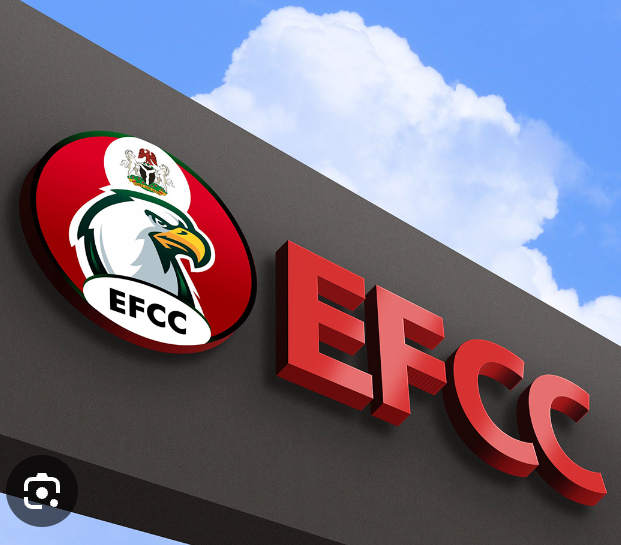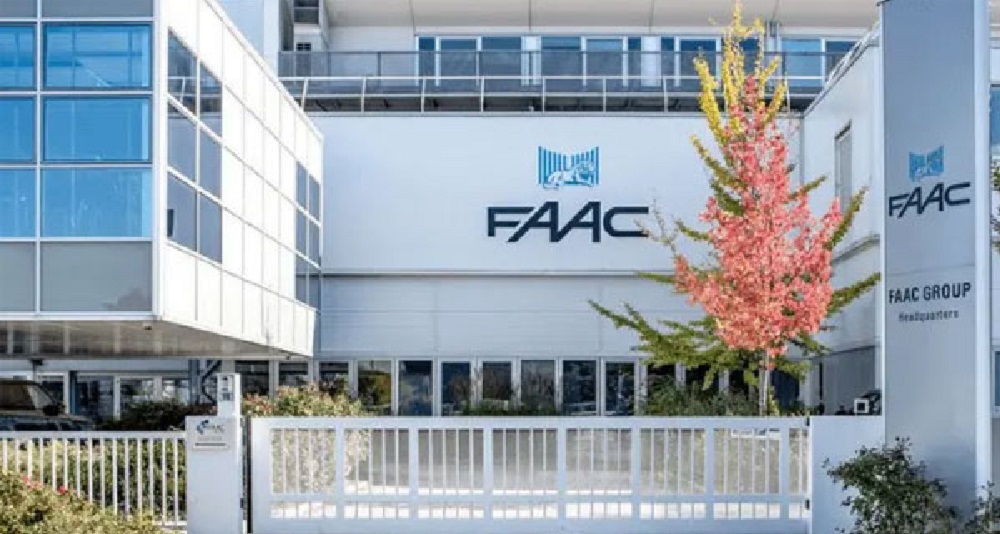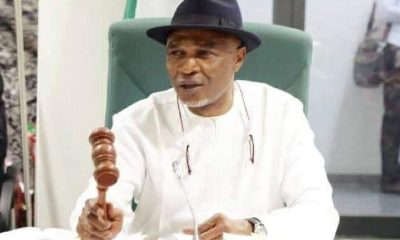News
EFCC plans clampdown on schools charging foreign currencies in Nigeria

By Kayode Sanni-Arewa
Nigeria’s Economic and Financial Crimes Commission (EFCC) has placed international schools charging tuition in dollars and other foreign currencies under surveillance.
EFCC believes such schools are contributing to the pressure on the Nigerian currency, the naira.
EFCC’s spokesman, Dele Oyewale, confirmed the development to newsmen on Thursday, saying the agency would clamp down on schools and other organisations charging foreign currencies.
He reiterated that it was illegal for schools, hotels and firms operating in the country to charge for services in foreign currencies.
He explained that the 7,000-man special task force on dollar racketeers operating across the EFCC zonal commands was monitoring the schools and other organisations that might be involved in the illegality.
In a move to curb the free fall of the naira against the greenback, the anti-graft agency in February summoned the proprietors of private universities and other schools charging tuition in dollars.
The task force also conducted several raids in Abuja, arresting currency traders suspected to be speculating against the naira.
Worried by the depreciation of the national currency, the Finance Minister and Coordinating Minister for the Economy, Wale Edun, had met with the governor of the Central Bank of Nigeria, Yemi Cardoso and the EFCC Chairman, Ola Olukoyede, to proffer solutions to the naira crisis.
Oyewale said it was illegal for any business operating in the country to charge for its services in foreign denominations apart from the naira, vowing sanctions for any breach of the law.
He stated, “The task force is not just to monitor naira abuse alone but for the whole economy. So, the EFCC is working to ensure that those breaking the rules find their way back to the right path so that the wrath of the law will not be on them.
“Yes, everyone knows that it is illegal to charge in other denominations apart from the naira. Whether in Chinese or American currency, any transaction that is not denominated in naira in Nigeria, the EFCC is against it.
“So, the task force is in place to check that and Nigerians should be happy about that. It is not just schools, hotels but other entities across the country that are doing this must come back to the naira as our legal tender.’’
He added, “Naira is the symbol of our economy and everything that has to do with the economy in Nigeria must be done in naira.’’
Asked if the schools, hotels and other businesses under watch would be punished if caught violating the law, Oyewale responded, ‘’Certainly, they are aware that we are watching them.’’
NUT supports EFCC
The National Union of Teachers (NUT) has declared its support for the EFCC over the move to sanction erring international schools charging in dollars.
The NUT president, Titus Amba, said, “Though I am not meant to speak on this because these schools are private schools. However, it is necessary to note that this is Nigeria and if you are going to charge for services, it should be in the national currency which is naira.
“So, we support the EFCC on its mission. Acts like these are sabotaging the economy so we support the EFCC and the Federal Government wholeheartedly.”
CISLAC hails move
The Executive Director of the Civil Society Legislative and Advocacy Centre, Auwal Rafsanjani, urged the government to review its memorandum of understanding with foreign schools and other businesses demanding payment in foreign currencies, noting that the economy was suffering on account of this.
“This cannot happen in the UK, it cannot happen in America, it cannot happen in any serious country. And that is why the economy is suffering because they have destroyed the value of the naira.
“So, we commend EFCC for rising to at least bring this issue to the public, because in the Memorandum of Understanding that they signed with the Nigerian government, there is nowhere the government permitted them to be charging in dollars. If there is anything like that, then we will need to seek reversal of that,” he said.
The group further asked the government to monitor the operations of all businesses demanding payment in foreign currencies.
Rafsanjani noted, ‘’Not only the foreign schools but even hospitals and real estate. Let the government review all those things, and if there were any fraudulent insertion of payment in dollars, the government should stop that as part of measures to revitalise the economy and our currency.”
News
FAAC shares N1.578tr to federal, states, councils for March 2025

Monthly disbursements to the federal, states and local government areas dropped for the third consecutive time yesterday. The Federation Account Allocation Committee (FAAC) shared N1.58 trillion to the three tiers for March
The committee announced N2. 411 trillion as the total revenue generated in March at its April meeting in Abuja yesterday.
The total distributable revenue comprised N931.325 billion from statutory sources, N593.750 billion from Value Added Tax (VAT), N24.971 billion from the Electronic Money Transfer Levy (EMTL) and N28.711 billion from Exchange Difference revenue.
According to the communiqué issued by FAAC, the gross revenue available for March stood at N2.411 trillion. The deductions for cost of collection stood N85.376 billion, while N747.180 billion went to transfers, interventions and refunds accounted consumed.
Despite the lower net revenue available for distribution, the March statutory revenue of N1.718 trillion showed an increase of N65.422 billion over the N1.653 trillion received in February.
However, revenue from Value Added Tax (VAT) dropped to N637.618 billion last month from the February figure of N654.456 billion – a decrease of N16.838 billion.
From the total distributable sum of N1.578 trillion, the federal government received N528.696 billion; states collectively got N530.448 billion, while the 774 local government areas received N387.002 billion. Additionally, N132.611 billion – representing 13 per cent of mineral revenue – was allocated to oil-producing states as derivation revenue.
The breakdown of the N931.325 billion statutory revenue shows that the federal government took N422.485 billion, the states got N214.290 billion and N165.209 billion shared to the councils. The oil-producing states received N129.341 billion from this component as derivation revenue.
From the VAT pool of N593.750 billion, the federal government got N89.063 billion, states got N296.875 billion and the local government areas got N207.813 billion.
For the EMTL revenue of N24.971 billion, the federal government took N3.746 billion, states received N12.485 billion and local government areas went home with N8.740 billion.
In the case of Exchange Difference revenue of N28.711 billion, the federal government received N13.402 billion, states N6.798 billion and local government areas was allocated N5.241 billion. A further N3.270 billion from this revenue was distributed as 13 per cent derivation to oil-producing states.
A deeper look into the revenue trends shows that while Petroleum Profit Tax (PPT) and Companies Income Tax (CIT) increased significantly during the month under review, several other key sources witnessed declines.
These include Oil and Gas royalty, EMTL, VAT, Excise Duty, Import Duty, and Common External Tariff (CET) Levies.
News
Nigeria Police face backlash over viral cash gift video

A viral video showing several Nigerian police officers allegedly receiving N5,000 each from a Chinese man and his family has sparked widespread outrage and renewed concerns over corruption and ethics in the Nigeria Police Force.
The footage, which surfaced online, shows uniformed officers lining up as a Chinese man hands them cash gifts.
The incident has drawn sharp condemnation from the public and human rights advocates, who described it as disgraceful and damaging to the image of the police.
When contacted by Vanguard, Force Public Relations Officer, ACP Olumuyiwa Adejobi, said he was unaware of the viral video or the incident.
Similarly, the Lagos State Police Command distanced itself from the footage. Its spokesperson, CSP Benjamin Hundeyin, clarified that the incident did not occur in Lagos, contrary to claims circulating online.
Public figures have also weighed in. Omoyele Sowore, former presidential candidate of the African Action Congress (AAC), described the video as “shameful” and called for the removal of the IGP.
“This is why I keep saying illegal IGP Kayode Egbetokun must leave the police force. It is the shame of the nation,” he wrote in a Facebook post.
Popular social commentator and human rights activist Martins Victor Otse, also known as VeryDarkBlackMan, called the act “disgraceful, disrespectful, and degrading,” urging the police leadership to address the matter transparently.
The incident has intensified calls for accountability, with many Nigerians demanding disciplinary action and systemic reforms to restore public confidence in the police force.
News
Easter celebration: FG declares Friday, Monday public holidays

The Federal Government has declared Friday, April 18, and Monday, April 21, 2025, as public holidays to mark Good Friday and Easter Monday.
This was disclosed by the Minister of Interior, Dr Olubunmi Tunji-Ojo, on Tuesday.
He emphasised the importance of embodying the virtues of the sacrifice and love displayed by Jesus Christ, who had to die for the redemption of man, while greeting Christians on the joyous occasion.
In a statement by the Permanent Secretary in the ministry, Dr Magdalene Ajani, the minister called on Nigerians to use the holiday period to pray for the peace, unity, and stability of the nation.
He reassured citizens of President Bola Tinubu’s commitment to the Renewed Hope Agenda, which seeks to foster national growth and development.
“Furthermore, he encouraged Nigerians to extend love and goodwill to their neighbours through acts of kindness and generosity.
“The minister wished all Christians a blissful Easter celebration and extended warm holiday greetings to all Nigerians,” the statement added.
-

 News20 hours ago
News20 hours agoTears, anguish as Plateau Community buries 51 killed by bandits
-

 News20 hours ago
News20 hours agoSHOCKING! One month after giving birth, woman discovers another baby in her womb
-

 News18 hours ago
News18 hours agoCBEX: 60 fraudulent Ponzi scheme operators to avoid in Nigeria
-

 News19 hours ago
News19 hours agoAngry investors raid CBEX office, loot assets in Ibadan after digital Platform crash
-

 Politics20 hours ago
Politics20 hours agoIgbo Youths Set To Mobilize 5 Million Man-March In Support Of Tinubu, Kalu
-

 News19 hours ago
News19 hours ago‘Not something I’d wish on anyone’ — Melinda Gates opens up on divorce
-

 News16 hours ago
News16 hours agoAgbakoba questions inconsistencies in Natasha’s sexual harassment allegations against Akpabio
-

 News14 hours ago
News14 hours agoReps Minority Caucus decries incessant tanker fire explosions, call for decisive actions to avert future occurrences






